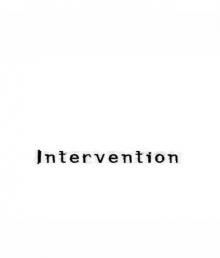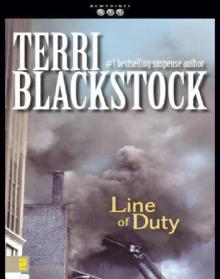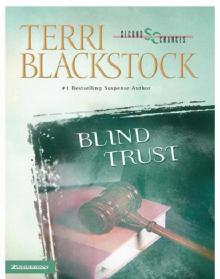- Home
- Terri Blackstock
Second Chance - 05 - Never Again Good-Bye Page 6
Second Chance - 05 - Never Again Good-Bye Read online
Page 6
Amy’s black eyes widened guardedly, and a flustered color traveled up her cheeks. “No, you’re not. My mother died.”
“But I’m your re—” She caught herself on the word real and tried again. “I was your first mother.”
The silence in the room was almost deafening, and the denial in the child’s eyes was piercing. Would she love her when she believed? Laney asked herself. Would she invite Laney to fill the void her mother had left? When Laney thought she could take the suspense no longer, Amy turned to her father, the only anchor she had in the world, and whispered, “Was she, Daddy?”
Wes squeezed her more tightly. “Yes, baby.”
Tears welled in the child’s eyes, and Amy’s bottom lip began to quiver. Her words were an octave higher than they had been before, revealing the terror in her bruised heart. “Are you going to give me back to her?”
Wes caught his breath, as if the question had scalded him, and framed Amy’s face with his big, protective hands. “No.” The word came out long and whispered. “It’s you and me. We’re a team.”
Laney felt the joy within her deflate as if it had never existed, but the hope still bobbed precariously in her heart. She watched in misery as Amy slid her arms around her father’s neck and buried her face into his chest. His expression became cold, almost vicious, as he held her. They had made a mistake, Laney thought frantically, and he was blaming her.
Amy pulled back, and Laney’s stomach coiled into a million knots at the dull, resigned expression on her face. “I’m tired,” the child said, climbing off her father’s lap. “I think I’ll go to bed. I don’t need to be tucked in.”
The words slashed at Laney’s heart like a knife. But she needed to tuck her in and sing her a song and read her a story, Laney thought. Yet Amy’s needs were more important. Laney felt the chilling rejection in the loneliest regions of her heart, but she refused to let the child see her cry. Amy was under enough pressure, enough stress, without having to deal with that. It was ironic, Laney thought. This was one of those times when Amy desperately needed a mother … except that the only mother she had left was responsible for her pain.
“Good night, Amy,” Laney said.
Amy stopped at the door and turned back to Laney, her eyes bearing as much bitterness as seven-year-old innocence would allow. “I’m not going to call you Mother,” she said defiantly.
“That’s OK,” Laney choked out. And as the little girl disappeared up the hallway like an elusive image in a dream, Laney felt as if her heart had been ripped out.
Wes’s cold silence made things even worse. She dropped her face into her hands and gave in to a rending sob. When she thought she could speak again, she wiped her face and looked up at him.
His eyes looked weary, lifeless, as he stared in the direction Amy had gone.
“I’m so sorry, Wes,” Laney said. “It was too soon. She wasn’t ready. I should have seen—”
“I was afraid this would happen,” he whispered miserably. “I shouldn’t have told you to go ahead.”
Laney took a few steps toward the door. “She needs someone, Wes. Don’t leave her alone back there. She’s so little …”
He nodded agreement but turned back to Laney. “Look, it was an experiment that failed. It’s better if from now on you just stay away. I know it’s asking a lot, but I don’t want her traumatized.”
Laney stood up to face him. Had she come so close only to lose everything? Was this just another trick that life had played on her? Dangling a treasure before her only to snatch it away, the way everything she’d ever wanted had been? No, she told herself defiantly. Amy needed her, whether she knew it or not, and Wes couldn’t stop Laney from filling that need.
“Wes, I can’t disappear now when she finally knows who I am. She’ll think I abandoned her again!”
“You owe her some peace, Laney. She doesn’t deserve all this.”
Since her father had robbed her of her child, Laney hadn’t felt such helpless frustration. She had pled with him too—and lost.
“Wes, please. She liked me. Even you had to see that.”
“Well, she doesn’t like you now,” he said, growing angry.
“And that’s all that matters, isn’t it? Now please, give me some time alone with her.”
Laney got her purse and clutched it tightly against her stomach. She started out the door, unable to bear looking up at him.
Oh, hope could be such a cruel emotion, a mocking weapon. It took people at their most vulnerable and shattered them when they surrendered to it. Laney had let herself hope today for the first time in years. And in one fell swoop her fragile, newly constructed world had come crashing down. All it took was a child’s denial. All it took was the frost in a pair of green, grieving eyes.
Neither the grief nor the anger had subsided a week later when Wes’s sister burst into his office. “You’re an idiot, you know that?”
Wes looked up from the books spread out on his desk and rubbed his hands over his tired eyes. “Leave me alone, Sherry,” he told her as she leaned in the doorway with her arms crossed judgmentally. “I’m in a bad mood.”
“Of course you’re in a bad mood,” she said, walking toward him, her abrupt footsteps jarring the walls of the tiny trailer they worked in. “You should be.”
“I mean it, Sherry,” he warned. “Don’t provoke me today.” He really didn’t think he could take it. Ever since he had told her about Laney and the night she had made spaghetti, his sister had been hounding and badgering him. “Provoke you?” Sherry said, pushing her shoulder-length, blond hair back from her face. “I ought to shoot you! You’re digging your own grave, Wes. She called again!”
Wes’s eyes snapped to attention and that wariness Sherry had grown so used to crept back into them. “I told you, I don’t want to see her or talk to her.”
She let out a disgusted breath and set her hands on her hips, trying to steady her voice. “Wes, Laney Fields is a very determined woman. She’s getting impatient with you. I’m really worried about what she might do.”
“Do you honestly think I’m not? Birth mothers file suit against adoptive parents every day. And sometimes they win, regardless of the best interests of the child.”
Sherry sat down knee to knee with him. “Wes, if she does file suit, you don’t have the money to fight it. But you could cooperate a little and avoid all of this.”
Wes looked down at his books, at the figures that told him the office building his company was just finishing was way over budget, at the notices from hostile creditors breathing down his neck, at the hospital bills that would have broken a rich man. He had never been rich.
“Just let her see her again,” Sherry said. “Just a harmless little visit.”
“I can’t cooperate at Amy’s expense,” he said.
“But, Wes, if she gets you in court and it comes out that you can’t even pay your grocery bill these days, how do you think that’ll look?”
His arm flailed across his desk, knocking the books and papers off with a loud clatter. “I have no choice!” he shouted, the tendons in his neck straining against the skin.
Sherry’s silence was all the condemnation he needed for his outburst. He steepled his shaking hands in front of his face, and his eyes softened as he looked at his sister who had literally prayed him through the despair and depression in the toughest times of his life. Even now, she worked for him for free when she wasn’t waiting tables or attending her fashion designing classes because he hadn’t been able to pay his secretary. “I’ll do what I have to do, Sherry.”
“I’m just saying that maybe you have alternatives,” she said quietly.
He dropped his head down and cupped his hands over the back of his neck. “Sherry, you don’t have a child. You don’t know what it’s like.”
“I have a niece,” she reminded him.
He squeezed his eyes shut. She’s afraid I’m going to give her back to Laney. She doesn’t understand, and she doesn’t trust Laney. “I
can’t make her spend Sundays at the zoo with a woman who threatens her security. I’d sell everything I have if I could keep Amy from getting hurt and being afraid.”
Sherry only studied him for a long moment. Finally she leaned across his desk and dropped a kiss on his forehead. “And I’d sell everything I have to keep from seeing my brother so scared,” she whispered. “But I don’t have anything except a stack of IOUs for back pay and a little objective, unwelcome advice. One of these days you’ll listen to me.”
“One of these days,” he agreed, looking up again, his sad eyes breaking her heart. “But not today.”
Sherry straightened and gave him a regretful smile. “Then I’ll keep telling her you’re not available to take her call,” she said. She started for the door, but Wes stopped her.
“Sherry?”
Sherry turned back to him, the beginning of a smile tugging at her lips.
“Thanks,” he said.
“No problem,” she answered, then closed him into the tiny office, alone with a million problems for which he had no solutions.
Laney sat in her car and propped her elbow on the open window as she gazed wistfully at the busy playground of Amy’s school. After several days of watching, she had determined the time every day that Amy’s class had recess. She had watched day after day, learning small details about her daughter that she hadn’t known before. She knew that her two best friends were a little blond girl with a pixie haircut who followed Amy around like a shadow and the redhead named Sarah, who had played with her at the park. She knew which boys she liked to have picking on her from the way she smiled and fought back when one pulled her hair or tripped her. And she got to know a bit about Amy’s teacher from the way she punished the rowdy children and slackened the reins on the behaved ones. What she didn’t know, however, was whether Amy had come to terms with what she had learned and whether she would react with hostility or pleasantness when Laney confronted her again.
A deep chasm of sadness ached inside Laney, and she closed her eyes. It wasn’t fair, she thought. Life was so cruel. The flicker of fear and dormant despair in Amy’s wide eyes the night they’d told her came back to her. If the child had slashed a knife right through her heart, Laney couldn’t have felt worse pain. She opened her eyes again and sought out her daughter drawing in the dirt with a stick. Why couldn’t it have turned out differently? And why had the cold warning in Wes’s voice when he’d made her leave been haunting her ever since? Why did the misery in his eyes keep her awake at night? Because he was a good man and she liked him, she told herself, and hurting him was the last thing she wanted.
“What am I going to do?” she whispered, not letting herself cry. If Wes wasn’t a gentle, caring father, if he wasn’t so capable, if the only happiness she’d seen in him hadn’t been tied up in that little girl, she would have been in court in a flash. If that sparkle of vulnerability, that guarded hurt-me-but-not-my-daughter look, that expectation of pain for both of them didn’t shine so apparently in his eyes, she might have been able to decide what to do. Why wouldn’t he take her calls? Why couldn’t they at least discuss it?
She watched as Amy’s teacher strolled out toward the playing children and sat down on a bench. Amy ran to her and tugged on her sleeve. Her teacher, a good-natured, older woman, put her arm around Amy’s shoulders as the girl chattered up at her.
A woman’s touch. Laney was glad she was getting it somewhere. But who would Amy turn to once school was out?
She wondered if Wes really did have what it took to raise her alone. Laney’s own father certainly hadn’t. She had learned very young that tears were only tolerated in the privacy of her bedroom with the door closed. She’d gotten random hugs from housekeepers and neighbors, and, like Amy, from teachers. But it was far from enough.
Amy needed a mother. And no matter how nurturing and caring Wes could be, at times all the good intentions in the world fell short. Times when the girl would cry out in the night for a mother, perhaps not even knowing herself that that was what she cried for. Laney wanted to be there when she did and hold her and comfort her the way she had so needed to be comforted as a child. She wanted her daughter to know where she could always go for a woman’s hug.
Laney watched the children being called back into the school building, and she started her engine, the noise grating across her consciousness like a chain saw. She and Wes had known destruction, and they both knew the dark, drastic feeling of loneliness. It had to end somewhere, she thought. She had no intention of taking Amy away from Wes. But if she had to use the court system to get regular visitation, she might as well try for what she knew would be better for her child. She knew that a custody battle would rip Wes apart. She even knew that it might hurt Amy—in the short run. But in the long run, she convinced herself, it would be for the best. In the long run, Amy needed to have both a father—and a mother. That way, they could both be there for Amy.
One of them would have to take the chance to make them all winners in a situation that spelled loss by its very nature. One of them would have to look ahead instead of behind. And someday they would all stop hurting.
Chapter Six
Two months later—two months that had crept by with a new kind of cruelty—Laney finally sat in the courtroom, staring down at her clenched hands on the table in front of her. Though she had seen Amy often from a distance over the last several weeks, she hadn’t seen Wes. Now she could see the toll this was taking on him. He had lost weight, the lines in his face were more pronounced, and he moved like a man with a hundred pounds of dread weighing his shoulders down. Since he had walked in, Wes had not looked at her. His eyes were dull and fixed on the table in front of him, as if he could keep his control only if he kept his eyes steady. He looked tired, and the lines branching out from his eyes seemed more deeply etched than they had before. He wore creased black pants and a gray jacket that fit his tall frame well. The missing button on the jacket told her it was not new, however.
Absently she smoothed back her sleek chignon and straightened her beige blazer. It was hot in the room, even though a ceiling fan buzzed overhead. Like Wes, she had to sit there and listen as her lawyer presented all the evidence they had—indisputable evidence in the form of documents, blood tests, and photographs—proving she was the child’s mother. And then, just as she’d expected, Wes’s lawyer presented his documents showing that Amy had been legally adopted, presenting Laney’s signature on the papers with great emphasis.
The room grew hotter, and tiny beads of sweat glistened on Wes’s forehead. Laney watched her lawyer pace across the room as he drilled Wes’s character witnesses: his sister, his best friend, his neighbor. With great interest her lawyer dwelt on the fact that Amy had not been taken for either her sixor seven-year checkups. The man was shrewd and missed nothing. That was why her father had used him for all his business. They had the same impenetrable temperament, the same go-for-the-throat strategy, the same conviction that the end always justified the means. He was the same lawyer who had drawn up Amy’s adoption papers, the same man who had told Laney where to sign on the dotted line, who had patted her hand and praised her for her “mature” decision. But he had known that the decision was not Laney’s. And that was why she had hired him to represent her. Perhaps his guilt would make him try harder, she thought. Perhaps his shrewdness would give them an edge. Perhaps his experience with this judge would weigh in their favor.
When the last of the character witnesses was dismissed, John LaRoux, her attorney, clasped his hands behind his back. “Your honor, I’d like to call Wesley Grayson to the stand.”
She watched Wes’s throat convulse as he stood up and started to button his coat, then remembered the missing button and let it go. His shoulders stiffened as he took the stand, and his alert eyes narrowed against LaRoux’s missilelike questions.
The missiles were expertly aimed and just as destructive. Laney listened with disbelief as her attorney drilled him in a mocking voice about his financial state,
about the fact that he’d declared a loss on his income taxes for the preceding year, about the judgments against his home and his business, about the bills that Wes still hadn’t been able to pay off.
“I’m self-employed,” Wes said in a shaky voice, trying desperately to restrain his anger. “My health insurance costs a fortune, and it doesn’t cover much. When my wife got sick …” His voice cracked, and he stopped and steadied himself. Swallowing, he started again. “There were a lot of expenses, and my insurance didn’t cover much at all. I had to pay for most of it. It set me back a little.”
“A little?” LaRoux echoed. “Exactly how much do you still owe, Mr. Grayson?”
Wes glanced at his lawyer. The man gave him a nod, telling him to go ahead.
“Somewhere around thirty-five thousand dollars,” he said quietly.
“Do you have any hope of paying that off, Mr. Grayson?” LaRoux asked.
Wes looked at the judge, then at Laney. “I’m doing the best I can.”
“And does your ‘best’ include possible bankruptcy?”
Wes took a beat too long to answer. “I don’t know.” He took a deep breath and tried to explain. “I have several bids out, and I’m working on one for the new amusement park project. I might be able—”
“But no contracts?”
“Not at the moment. We just finished a project, but it was over budget because of some problems that came up—”
“Thank you, Mr. Grayson,” LaRoux said, cutting him off. The attorney smiled and turned to the judge, but Laney’s eyes remained on Wes. His jaw tensed as he stared at the floor, bracing himself for what he knew was to come. His eyes were opaque, but behind the dullness was fear so great that it made Laney shiver. The man had lost more than his wife. He had almost lost his business and his home, he had gone into debt so great that he had little hope of ever getting out from under it, he faced the prospect of losing his daughter, and now he was losing his dignity as well.

 Aftermath
Aftermath Shadow of Doubt
Shadow of Doubt Second Chance - 05 - Never Again Good-Bye
Second Chance - 05 - Never Again Good-Bye Miracles
Miracles Broken Wings
Broken Wings the Cape Refuge (Cape Refuge Series Book 1)
the Cape Refuge (Cape Refuge Series Book 1) Shadow in Serenity
Shadow in Serenity Distortion (Moonlighters Series)
Distortion (Moonlighters Series) Second Chance - 02 - When Dreams Cross
Second Chance - 02 - When Dreams Cross True Light
True Light Private Justice
Private Justice Last Light
Last Light Downfall (An Intervention Novel)
Downfall (An Intervention Novel) Distortion: Moonlighters Series: Book Two
Distortion: Moonlighters Series: Book Two Evidence of Mercy
Evidence of Mercy If I Run
If I Run Southern Storm
Southern Storm Ulterior Motives
Ulterior Motives Emerald Windows
Emerald Windows River's Edge
River's Edge Intervention
Intervention The Heart Reader
The Heart Reader Line of Duty
Line of Duty Twisted Innocence
Twisted Innocence When Dreams Cross
When Dreams Cross Downfall
Downfall Cape Refuge
Cape Refuge Breaker's Reef
Breaker's Reef Night Light
Night Light Double Minds
Double Minds Justifiable Means
Justifiable Means Covenant Child
Covenant Child If I Live
If I Live If I'm Found
If I'm Found Vicious Cycle
Vicious Cycle Presumption of Guilt
Presumption of Guilt Trial by Fire
Trial by Fire Word of Honor
Word of Honor Second Chance - 03 - Blind Trust
Second Chance - 03 - Blind Trust Blind Trust
Blind Trust Twisted Innocence (Moonlighters Series Book 3)
Twisted Innocence (Moonlighters Series Book 3) Predator
Predator Dawn's Light
Dawn's Light Chance of Loving You
Chance of Loving You Truth-Stained Lies
Truth-Stained Lies Never Again Good-Bye
Never Again Good-Bye Catching Christmas
Catching Christmas